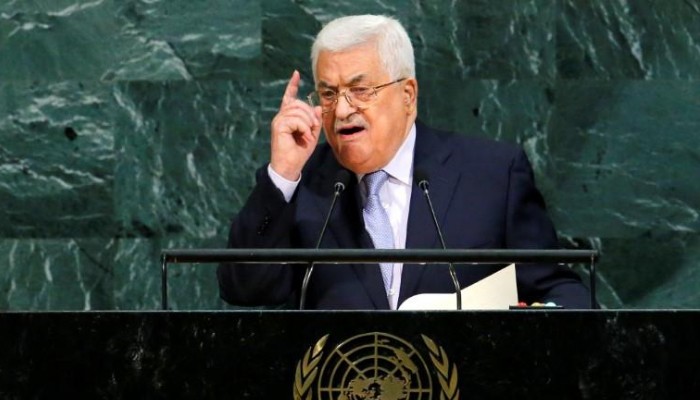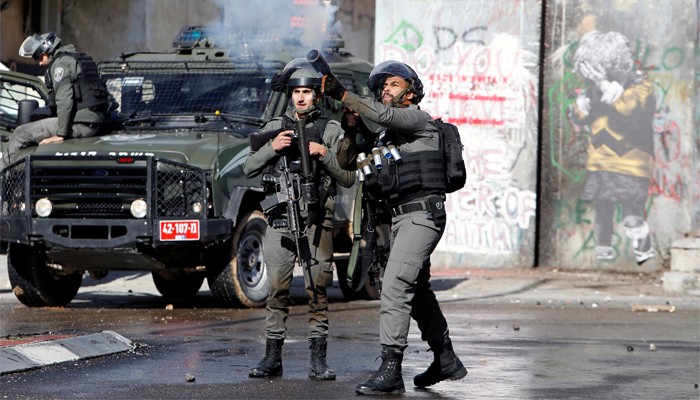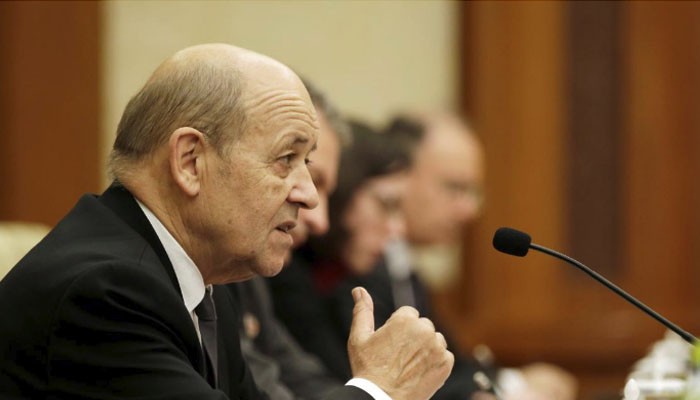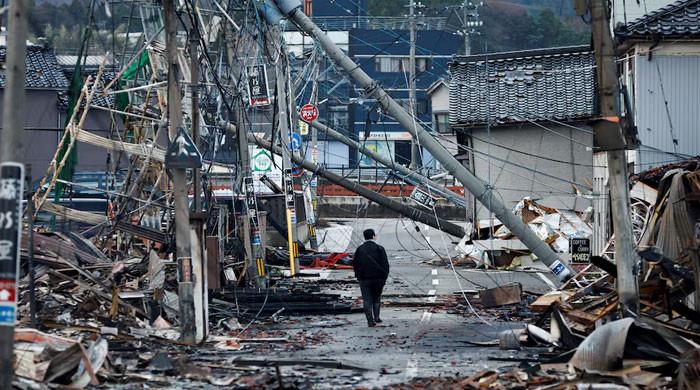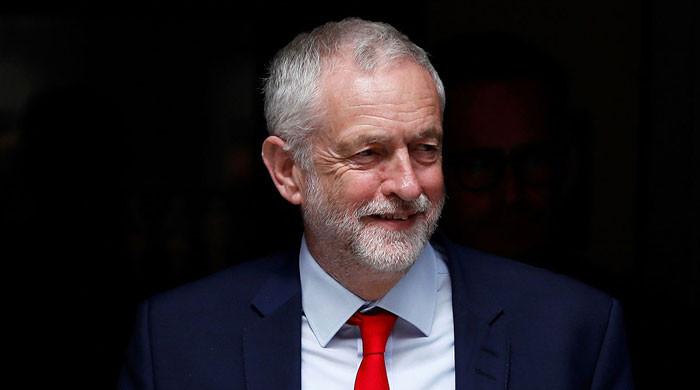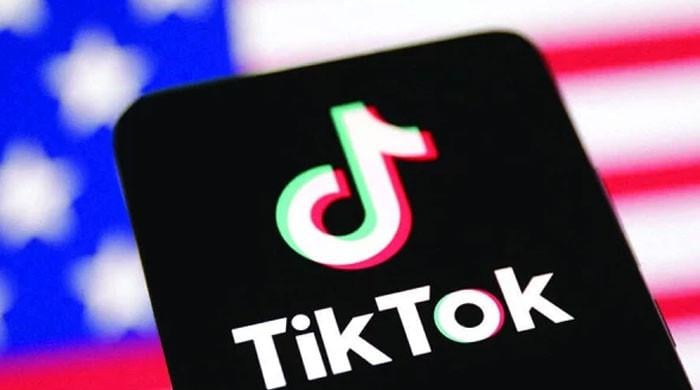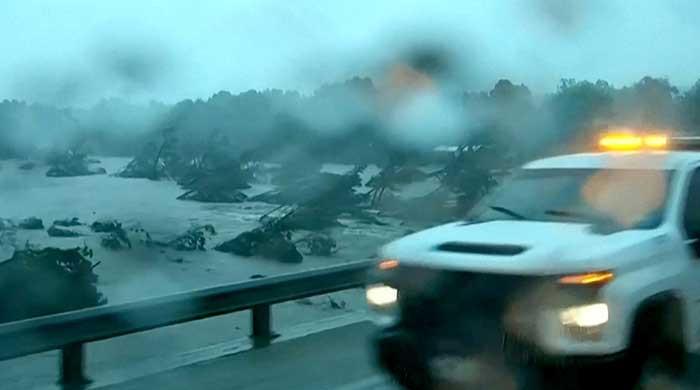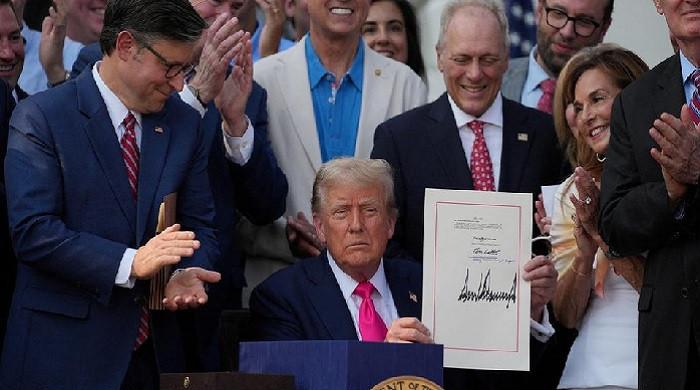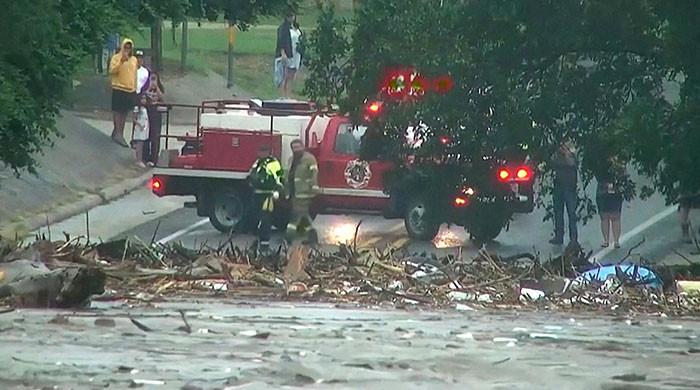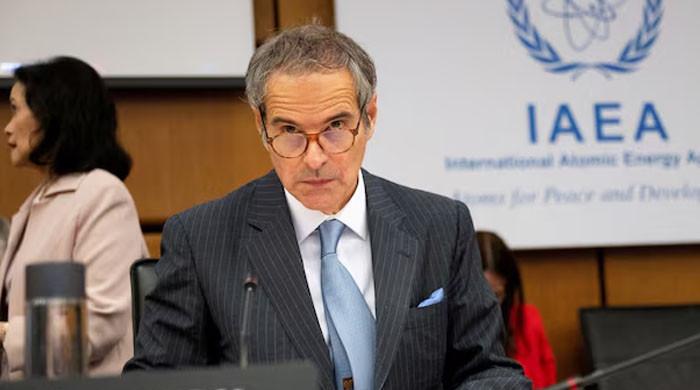At least one dead, 25 wounded in Israeli retaliation strikes in Gaza
This is the first death linked to protests since Trump's recognition of Jerusalem as Israel's capital
December 09, 2017
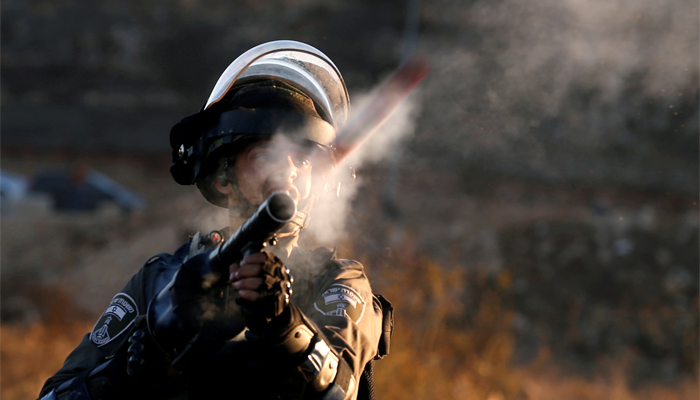
GAZA: Israel’s military said its aircraft bombed militant targets in Gaza on Friday and the Palestinian Health Ministry said at least 25 people were wounded in the strikes, including six children.
The Israeli military said it had carried out the strikes on a militant training camp and on a weapons depot in response to rockets fired earlier from Gaza at Israeli towns.
Witnesses said most of the wounded were residents of a building near the camp.
At least one Palestinian was killed in clashes with Israeli troops earlier on Friday and dozens wounded in “day of rage” protests against US President Donald Trump’s recognition of Jerusalem as Israel’s capital.
The diplomatic fallout from the deeply controversial declaration also continued, with suggestions Palestinian President Mahmud Abbas could refuse to meet US Vice President Mike Pence on his visit to the region later this month.
The UN Security Council was meeting Friday in an emergency session to discuss Trump's move, which has drawn near-universal condemnation, including from United Nations Secretary-General Antonio Guterres.
Whether unrest would spread and spiral both in the Palestinian territories and elsewhere was being closely watched, with Friday marking the second day of unrest.
Palestinian movement Hamas — which runs the Gaza Strip — had called for a "day of rage" after its leader Ismail Haniya said a new Intifada, or uprising, should begin.
The Palestinian killed in clashes along Israel's border with Gaza was the first death linked to protests since Trump's declaration on Wednesday.
A second Palestinian in Gaza was in "very critical" condition after being shot in the head during the clashes.
The Israeli army said around 4,500 Palestinians "participated in protests at six locations along the border with the Gaza Strip".
It said the troops shot at "dozens" of people along the Gaza border, but did not specify how many were wounded.
"During the protests, soldiers fired selectively towards dozens of participants and hits were confirmed," an English-language statement said.
On Friday evening, Palestinians in Gaza fired a rocket at Israel which was shot down by the Iron Dome anti-missile system, the army said.
The army said thousands of Palestinians took part in protests throughout the West Bank.
"During the course of the day, 28 protesters were arrested and approximately 65 were injured," it said, without elaborating.
Tens of thousands of people also took to the streets of Muslim and Arab countries across the world in protest, including in Jordan, Turkey and Malaysia.
'God knows where'
Trump's announcement has been met by a worldwide diplomatic backlash, though Israeli Prime Minister Benjamin Netanyahu has lavished praise on the president and called the declaration "historic."
For Jewish Israelis, the declaration is a simple recognition of reality and validation of their view that Jerusalem is their 3,000-year-old capital.
Trump said his defiant move — making good on a 2016 presidential campaign pledge — marks the start of a "new approach" to solving the Israeli-Palestinian conflict.
But many analysts question how a fair peace process could be possible by granting such a major Israeli demand while seeming to require nothing in return.
Israel has long claimed all of Jerusalem as its undivided capital, while the Palestinians see the eastern sector of the city as the capital of their future state.
Its status is perhaps the most sensitive issue in the decades-long Israeli-Palestinian conflict, and international consensus has been that it must be negotiated between the two sides.
"It's empty talk," said a 20-year-old man who gave his name only as Omar as he walked towards Al-Aqsa mosque, Islam's third-holiest site and located in Jerusalem's Old City.
"No matter what happens, we know Jerusalem is the capital of Palestine, not of Israel. Israel is an occupier."
Trump's declaration and intention to move the US embassy from Tel Aviv to Jerusalem are moves that may help him domestically since they were long-sought by US evangelical Christian and right-wing Jewish voters — key parts of his electoral base and important financial donors.
But while the declaration may mean little immediate concrete change, it risks setting off another round of bloodshed in the turbulent Middle East.
European Union (EU) diplomatic chief Federica Mogherini said the decision could take the region "backwards to even darker times".
Muslim and Middle Eastern leaders, including key US allies, have expressed alarm over Trump's decision to break with decades of precedent with unpredictable consequences.
Turkish President Recep Tayyip Erdogan said it would put the region in a "ring of fire."
'Not welcome'
Palestinian leaders have been so outraged that they have argued it disqualifies the United States from its traditional role as peace broker in the Middle East conflict.
Mohammad Shtayyeh, a senior Palestinian official who has been involved in past peace talks, questioned what was left to negotiate.
"If these are the signs of the ultimate deal, God knows what the deal is going to be," he said, referring to Trump's pledge to reach an Israeli-Palestinian peace agreement.
"Maybe the expulsion of the Palestinians — God knows where."
The declaration is sure to weigh heavily on Pence's upcoming visit.
He was due to meet the Palestinian president in the second half of December on a regional tour, but a senior member of Abbas's Fatah faction said this would not now happen.
"The American vice president is not welcome in Palestine. And President Abbas will not welcome him," Jibril Rajoub said.
Abbas has not made similar comments, and the White House is likely only to consider the meeting cancelled if he does so himself.
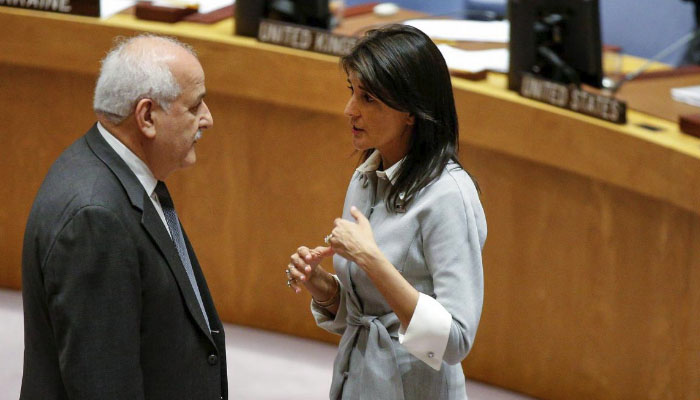
A White House aide said Pence "still plans to meet with Abbas as scheduled", and "believes it would be counterproductive for him to pull out of the meeting".
Interestingly, however, Haley said Friday the US still has credibility as a mediator with both Israel and the Palestinians, after President Donald Trump’s Jerusalem decision as Israel’s capital.
She said the UN has damaged rather than advanced the prospects for Middle East peace.
“The United States has credibility with both sides. Israel will never be, and should never be, bullied into an agreement by the United Nations, or by any collection of countries that have proven their disregard for Israel’s security,” Haley told the UN Security Council.
Grand Imam Ahmed al-Tayeb of Al-Azhar — Egypt's highest institution — has cancelled a meeting with Pence, a statement said.
